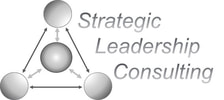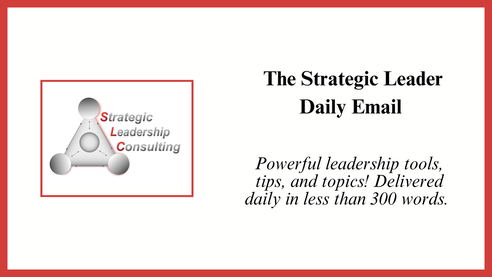|
Colleagues,
365 days ago, Margaret Heidlebaugh departed this world. Maggie was my mother-in-law, and she had a superpower. Every time I walked through her front door she would make the world stop. She ceased all movement, looked into my eyes, lit up like a North Carolina lighthouse, and said, “Frederick!” in a way that made me feel like I was the most important person in the world. I can still hear – and feel – her say my name. We should all learn something from Maggie. How did she do it? The technical:
The authentic: I believe that when she saw me, her world really did stop, and I really was the most important person for that moment. That is why my world stopped, and why I felt so important. Imagine being able to give this gift to people on a routine basis. What would it be like if, every day, you could make each person in your organization (and your family!) feel like they were the most important person on the planet, even if just for a moment? I doubt any of us will ever be as good at that as Maggie was, but if we can be better at it than what we are now, that will be beautiful gift for those we serve. I love you Maggie and thank you for always making me feel special. I will try to pass it forward. Cheers, Frederick
0 Comments
Colleagues,
A little over a year ago I committed to learning to play the guitar. I have tried multiple times but always given up after a month or two. This time has been different, and I can now say “Yes, I play guitar.” Not very well, but enough. I have two big barriers to getting better:
It’s hard to get better when I don’t intentionally invest time in practicing new skills, and there is nobody to help me improve my technique or to play along with. Yes, I can (and do) use videos and apps, but they can’t take the place of a real person. Our leadership is that way. We won’t grow as leaders without being intentional, and it is harder to grow in isolation. I hope that I am one part of your leadership growth support system, but you need more than just me =;^} Reflect:
FYI, there will be a special edition on Sunday morning. Serious and emotional, but also special. Cheers! Frederick Colleagues,
Yesterday I turned a critical eye on the notion of vision and asserted that an organization’s vision should be a reflection of the organization’s purpose and people. Creating a shared vision is not always simple. A vision really begins with dreams, and a group of people need four conditions to be able to dream:
Meeting these conditions lays the ground for developing a shared vision that works for the organization and its people. Leaders don’t create visions. They help people to clarify and articulate a shared vision. Cheers! Frederick Colleagues, You see things; and you say “Why?” But I dream things that never were; and I say “Why not?” -George Bernard Shaw, 1949 I have a love/hate relationship with vision. I used to be in love with the idea of creating a great vision. Then one day, a “leader” came into the organization I worked in and imposed his vision on all of the people and programs that had been there before him. Three years later, the “leader” was gone, but most (not all) of the people were still there. Those people were left to pick up the pieces of a painful and contentious series of changes. Vision is a double-edged sword. Vision can be a powerful tool for good. Here is the challenge as I see it…
The vision must be a shared vision. Leaders are servants first, and part of their job is to articulate the goals, dreams, and aspirations of the people within the organization. Where things are unclear, limited, or confused, leaders work to educate, clarify, and build consensus. Every organization should have a vision, but the genesis of that vision should lay at the intersection of the purpose of the organization and the people within it. Cheers! Frederick Colleagues,
Yesterday I shared the framework for routine and predicable issues. Today we will look at an example of predictable. Every morning at 6:00 am this email arrives at your inbox. Mara and I have worked hard to develop a standard operating process (SOP) to make sure that what I write gets delivered to you on time and in shape every day. Despite our SOP, every now and then something goes wrong. Because we work on different schedules (Mara at night, me in the day), we can’t always communicate to deal with an issue. You may remember two weeks ago that there was a repeat email. Our SOP didn’t cover the situation that arose. Now, we have a backup plan:
It isn’t ideal, but it is acceptable – just in case. What’s something that you know will happen at some point, but you can’t be sure when? Do you have a simple contingency plan? Cheers! Frederick |
Categories
All
Archives
July 2024
|


 RSS Feed
RSS Feed